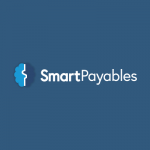In an era where digital transactions are becoming the norm worldwide, the United States stands out for its continued reliance on paper checks. This might seem peculiar, especially considering America’s role as a global leader in technological innovation. So, why do Americans still cling to checks, and what factors contribute to this financial anachronism?
Historical Context and Banking Infrastructure
To understand the current scenario, we must look back at the history of banking in the United States. Unlike many European countries, where a few major banks dominate the landscape, the U.S. has a highly fragmented banking system with thousands of small banks and credit unions. This fragmentation meant that, historically, no universal system for electronic funds transfer (EFT) had been adopted by all these institutions.
Checks became a convenient solution. They offered a universal format that any bank could process, regardless of size or technological capability. This convenience ingrained checks into the American financial system, making them a staple of personal and business transactions.
The Cultural Aspect
There’s also a cultural dimension to consider. For many Americans, checks are synonymous with financial transactions. They are used for everything from paying rent to gifting money. This tradition has been passed down through generations, creating a comfort level with checks that newer forms of digital payment struggle to match.
Moreover, checks provide a tangible record of payment that some individuals and businesses find reassuring. Writing a check involves a deliberate act of authorizing a payment, which some users find more secure and controlled compared to digital transactions.
Business Practices and B2B Transactions
In the business realm, checks hold significant ground, especially in B2B (business-to-business) transactions. Many businesses continue to use checks due to their established accounting practices. Checks provide a paper trail that can be easily audited, which is essential for many businesses.
Additionally, small businesses, which form a substantial part of the American economy, often prefer checks due to their ease of use and the lack of transaction fees associated with many digital payment methods.
The Role of Technology and Regulation
Technological and regulatory factors also play a role. The U.S. banking system has been slow to adopt a universal digital payment platform. While services like Zelle and the Automated Clearing House (ACH) network offer electronic transfer options, they haven’t been universally adopted or integrated across all banking platforms.
Moreover, regulatory processes in the U.S. can be complex, and the implementation of a unified digital payment system faces both bureaucratic and logistical challenges. This situation contrasts sharply with countries like the UK, where the Faster Payments Service allows quick and universal bank transfers.
Security Concerns
Security is another aspect where checks have an edge in perception. Although electronic transfers are generally secure, high-profile cyber attacks and data breaches have made some people wary of digital transactions. Checks, being physical, are often perceived as less susceptible to such risks despite their own vulnerabilities to fraud.
The Role of Financial Education
Financial education plays a crucial role in this scenario. Many Americans are not fully aware of the benefits and security features of electronic payments. There’s a lack of widespread education on how to use digital payment systems securely and efficiently, which contributes to the ongoing preference for checks.
Moving Forward: The Shift to Digital
Despite the continued use of checks, there is a gradual shift towards digital payments in the U.S. Younger generations, more comfortable with technology, are adopting electronic payment methods more readily. The convenience of digital payments, combined with growing security measures and an increasing number of businesses and banks adopting these technologies, is leading to a slow but steady transition.
However, this transition is not without its challenges. To move away from checks completely, the U.S. needs a more unified banking infrastructure, better financial education, and a cultural shift in how money transactions are viewed.
In fact, a study conducted by the Federal Reserve Payments Study (FRPS) shows the rapid growth of core noncash payments in the U.S., which has increased at a rate of 9.5% per year since 2018. The value of ACH transfers accounted for over 90% of this rise, reaching $91.85 trillion in 2021 and representing 72% of the value of core noncash payments. Additionally, while the number of check payments continued to decline (7.2% per year since 2018), their value increased slightly, with the average value rising from $1,908 in 2018 to $2,430 in 2021.
Transitioning to Efficient Payment Solutions with SmartPayables
In an age where digital transactions are becoming increasingly prevalent, Smart Payables offers a cutting-edge solution for streamlining payment processes. With our user-friendly online check printing, ability to send bulk checks, and automated NACHA payments accessible from any device, we at Smart Payables transform the traditional payment landscape. Our customization through API integration caters seamlessly to your business needs, backed by an easy setup process, comprehensive reporting features, and dedicated support from a professional team.
Embrace the efficiency and security of modern payment methods with SmartPayables. Whether you require secure check printing, ACH automation, or specialized services like W-2 and 1099 processing, we deliver a tailored solution. Discover how SmartPayables can enhance your financial operations and bring unparalleled ease to your transactions.
Contact SmartPayables today.
Founded in 2005, Smart Payables offers a full range of accounts payable payment solutions including outsourced check printing and mailing, document and statement printing and mailing, ACH direct deposits + more. Our highly experienced software developers and intelligent printing teams specialize in secure, enterprise-grade payment options that are HIPAA, SOC 1 Type 2, and ISO compliant. Our mission is to help businesses and large organizations implement secure, innovative technology that will reduce overhead and improve business operations and capabilities.


